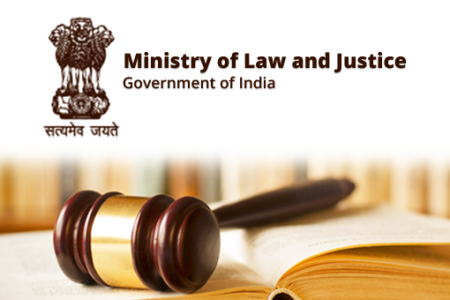New Delhi: In a recent statement, the Government has highlighted its commitment to promoting Alternative Dispute Resolution (ADR) systems as a means to expedite justice delivery in the country. The legal framework enabling the resolution of disputes through ADR has been established under Section 89 of the Civil Procedure Code, 1908, recognizing various methods such as Arbitration, Conciliation, Mediation, and Judicial Settlement, including settlement through Lok Adalat.
The Mediation Act, 2023, further empowers the courts to refer disputes, including compoundable offenses and matrimonial issues, for mediation. The government emphasizes that while it has no direct role in court case disposal, it actively works towards creating an ecosystem for faster and efficient resolution by the judiciary.
Efforts to reduce litigation have been ongoing for years, with initiatives like the National Mission for Justice Delivery and Legal Reforms, focusing on enhancing accountability, reducing delays, and clearing arrears. Under the Centrally Sponsored Scheme for Judicial Infrastructure, funds are allocated for the construction of court facilities, residential quarters, and digital resources, with a significant increase in court halls and residential units.
The e-Courts Mission Mode Project leverages information and communication technology, aiming for digital, online, and paperless courts. The recently approved Phase-III of eCourts emphasizes incorporating technologies like Artificial Intelligence and Blockchain to enhance justice delivery.
The government has actively addressed judicial vacancies, with numerous appointments in the higher judiciary, including the Supreme Court and High Courts. Fast Track Courts, specifically designed for heinous crimes and property-related cases, have been set up, along with Arrears Committees to reduce pending cases.
To facilitate legal advice and consultation, the Tele-Law program, launched in 2017, connects individuals with panel lawyers through video conferencing, telephone, and chat facilities. Over 60 lakh cases have been addressed through Tele-Law and its mobile application.
Significant legislative changes have been implemented, such as amendments to the Arbitration and Conciliation Act in 2015, 2019, and 2021, focusing on expeditious proceedings and enforcement of arbitral awards. The Commercial Courts Act, 2015, was amended in 2018 to introduce Pre-Institution Mediation and Settlement for commercial disputes.
The establishment of the India International Arbitration Centre in 2019 aims to provide a world-class platform for institutional arbitration. The Mediation Act, 2023, emphasizes institutional mediation for a robust dispute resolution ecosystem, while Lok Adalats continue to provide an effective mechanism for settling cases amicably.
In summary, the government’s multifaceted approach, incorporating legislative reforms, technological advancements, and institutional strengthening, underscores its dedication to streamline the justice delivery system and promote alternative dispute resolution mechanisms in the country.

